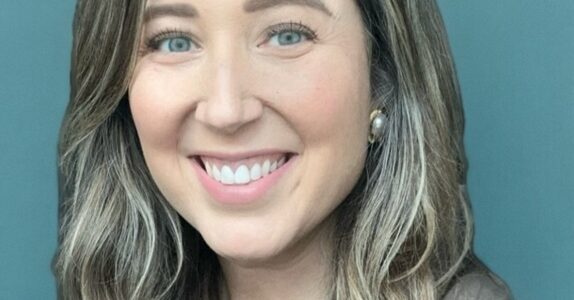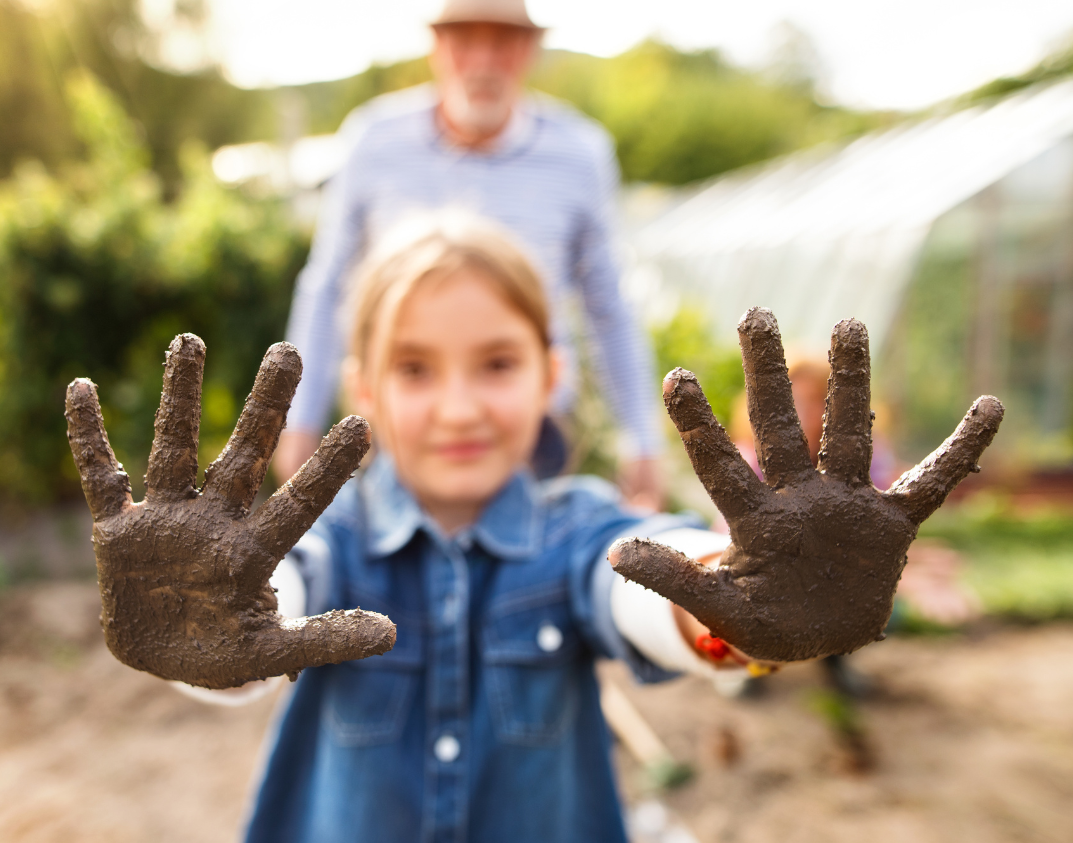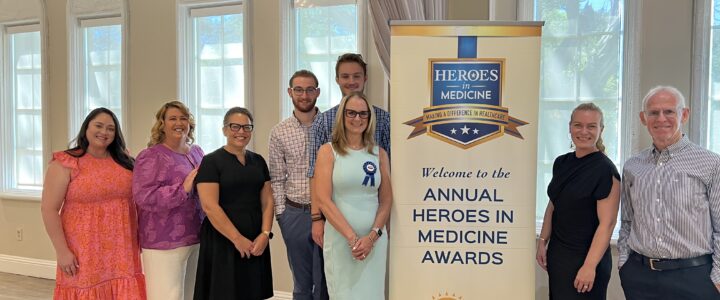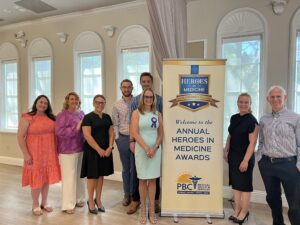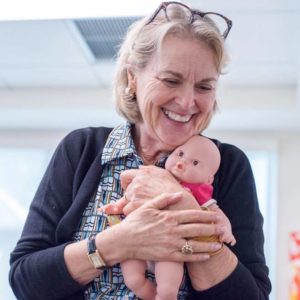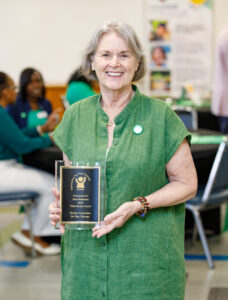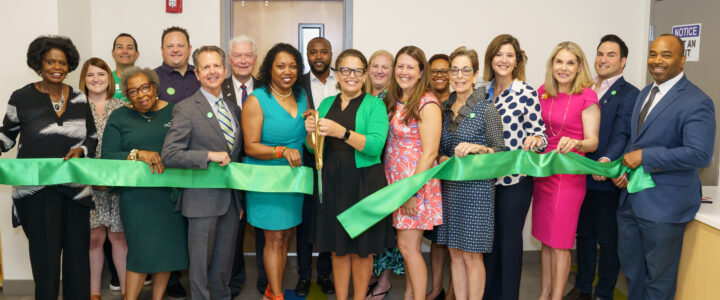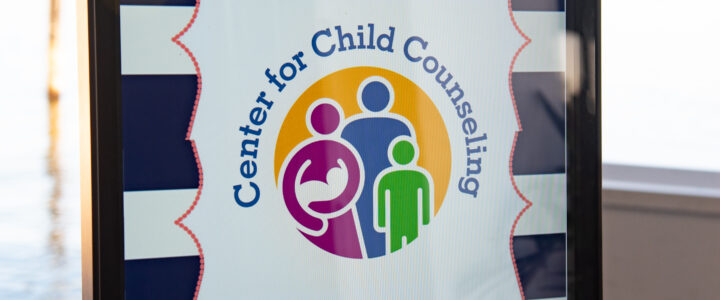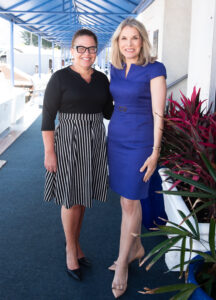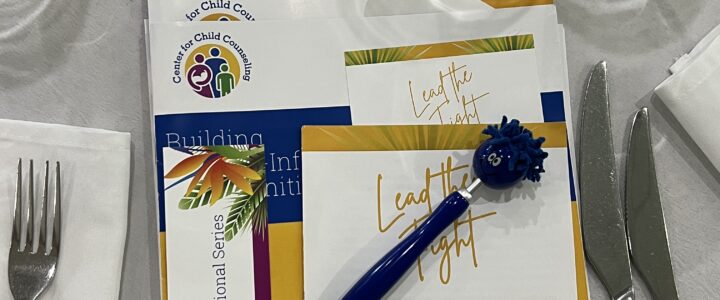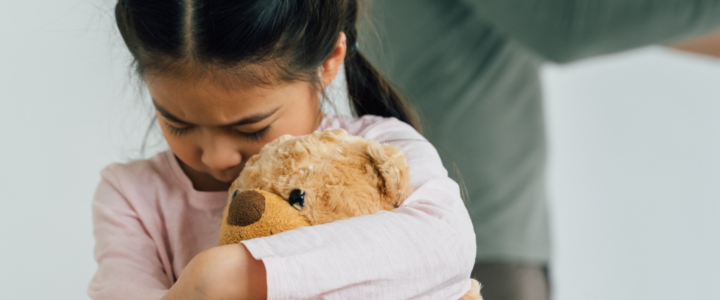NEWS RELEASE
May 2, 2024
For immediate release
Media contact: Cara Scarola Hansen
Center for Child Counseling Public Relations Counsel
cara@yourmissionmarketing.com
DeSantises Name Local Mother Florida Hero:
Bailey Hughes Recognized for Her Selfless Dedication in Delivering Help and Hope to Foster Children and Families
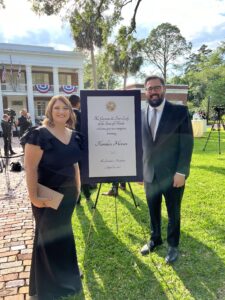 Governor Ron DeSantis and First Lady Casey DeSantis honored Bailey Hughes, executive director and co-founder of local nonprofit The Hands and Feet, as a Florida Hero on Friday, April 26. The DeSantises welcomed heroes from across the state of Florida to the Governor’s Residence to recognize them for their selfless contributions and for exhibiting exceptional courage, compassion, and resilience in the face of adversity.
Governor Ron DeSantis and First Lady Casey DeSantis honored Bailey Hughes, executive director and co-founder of local nonprofit The Hands and Feet, as a Florida Hero on Friday, April 26. The DeSantises welcomed heroes from across the state of Florida to the Governor’s Residence to recognize them for their selfless contributions and for exhibiting exceptional courage, compassion, and resilience in the face of adversity.
Hughes was one of seventy-five Florida Heroes honored at the ceremony, including first responders, doctors, veterans, law enforcement, philanthropists, entrepreneurs, parents, and innovators who have all exhibited bravery and self-sacrifice. Also honored were members of the community who have dedicated themselves to helping others overcome adversity through nonprofit efforts, adoption and foster care, careers in education, and advocacy.
“This evening it was a privilege to recognize and personally thank each Florida Hero in attendance for their selfless dedication to their communities and our state,” said Governor DeSantis. “In Florida, we want to recognize and extoll the virtues of selflessness and service, and these 75 individuals embodied those virtues through their actions and achievements.”
Hughes is a wife, mother, and former special educator for the Palm Beach County School District. She and her husband fostered 23 children and adopted 4 of those children.
Before becoming a foster parent in 2016, Hughes was a special education elementary teacher at a Title 1 school in a self-contained Emotional Behavioral Disabilities unit. Working with some of the most vulnerable and hurting children, Hughes saw firsthand how the mental health world for children was desperately lacking. She found success in helping these children by educating herself, watching her peers, and listening to parents who found themselves in the depths of their child’s mental health struggles. She successfully was able to advocate for services, change of school or classroom placement, and assist families over her years as a teacher.
After leaving the classroom in 2018 and in the midst of fostering children, Hughes still found herself advocating on a daily basis. Whether supporting a fellow foster or adoptive family in the trenches with their child, or fighting for her own children, Hughes has seen how much just being a voice for someone in a time of need can mean. She has been a part of a child’s healing from the immense trauma that can sometimes take place in a child’s life–through play therapy, psychiatric services, and community help.
Hughes joined Center for Child Counseling’s Board of Directors in 2020 to help move forward the agency’s mission of promoting positive mental health for children and families and preventing and healing the effects of adverse childhood experiences and trauma. She continues to be an integral member of the board today, often sharing her family’s personal story, including the positive, life-changing, and healing effects the Center had on her children.
In addition to witnessing the deep trauma that children within Palm Beach County face on a daily basis, Hughes also experienced the gap in resources for foster and kinship families. For instance, Hughes knows story after story of infants and children being dropped off at foster families’ doors with nothing but a soiled diaper or dirty clothes–no formula, car seat, crib, shoes…no essentials. These repeated circumstances led Hughes and her sister, Makayla Doolin, to co-found The Hands and Feet in 2021–a nonprofit organization that provides essential items to children and families so that they can know the support of a caring, loving community. The impactful agency brings a sense of comfort to a terrifying situation.
“We strive to be the hands and feet that deliver resources to the most vulnerable children and families in our community because every person should know they are loved and supported despite their circumstances. Consider us doordash for foster care–we deliver nearly everything a child entering, or at risk of entering, foster care needs to cover the gap,” stated Hughes.
The Hands and Feet started out serving Palm Beach County. Today, it also serves the Treasure Coast and Broward County–delivering items such as: clothes, shoes, socks, undergarments, school uniforms and supplies, hygiene items, formula, diapers, wipes, car seats, baby items and gear, cribs and toddler beds, beddings, comfort items, and toys. In less than three years, The Hands and Feet has served more than 5,500 children across six counties in Florida.
“We are proud tonight to share the goodness of Floridians,” said First Lady DeSantis. “We were glad to highlight the inspiring stories of first responders, community leaders, foster parents, veterans, doctors, and others.”
Hughes, along with the 74 other Florida Heroes, had her change-making story shared during a recognition ceremony and displayed throughout the Governor’s Residence.
“It was a wild night to be invited to the Governor’s mansion. What an honor!” exclaimed Hughes.
About The Hands and Feet
The Hands and Feet was established in 2021 to deliver help and hope to children and families with an open child welfare case. They deliver nearly everything a child entering, or at risk of entering, foster care needs to cover the gap–from tangible goods, like clothes, shoes, and car seats, to the kind of emotional support only people who have experienced the process can offer. The Hands and Feet acts as an immediate resource for foster families, biological parents, relative caregivers, and aged-out foster youth. For more information, visit: thehandsandfeet.org.
About Center for Child Counseling
Center for Child Counseling has been building the foundation for playful, healthful, and hopeful living for children and families in Palm Beach County since 1999. Its services focus on preventing and healing the effects of adverse experiences and toxic stress on children, promoting resiliency and healthy family, school, and community relationships. www.centerforchildcounseling.org Twitter: @ChildCounselPBC Facebook: @CenterforChildCounseling Instagram: @childcounselpbc
###
 Center for Child Counseling (CFCC) announces Heather Bennett as director of advancement to play a crucial role in raising funds for the Palm Beach County-based nonprofit, supporting its mission through developing long-term organizational sustainability.
Center for Child Counseling (CFCC) announces Heather Bennett as director of advancement to play a crucial role in raising funds for the Palm Beach County-based nonprofit, supporting its mission through developing long-term organizational sustainability.
